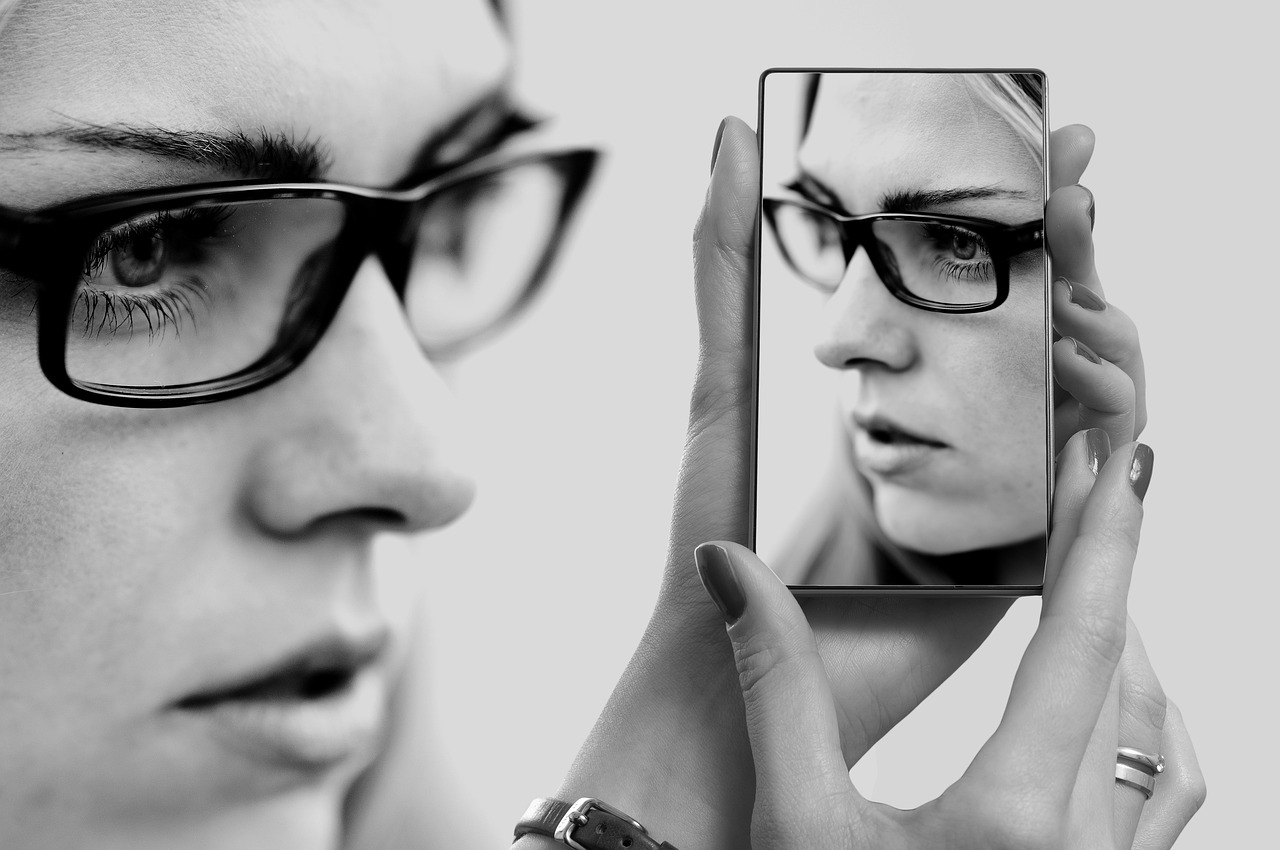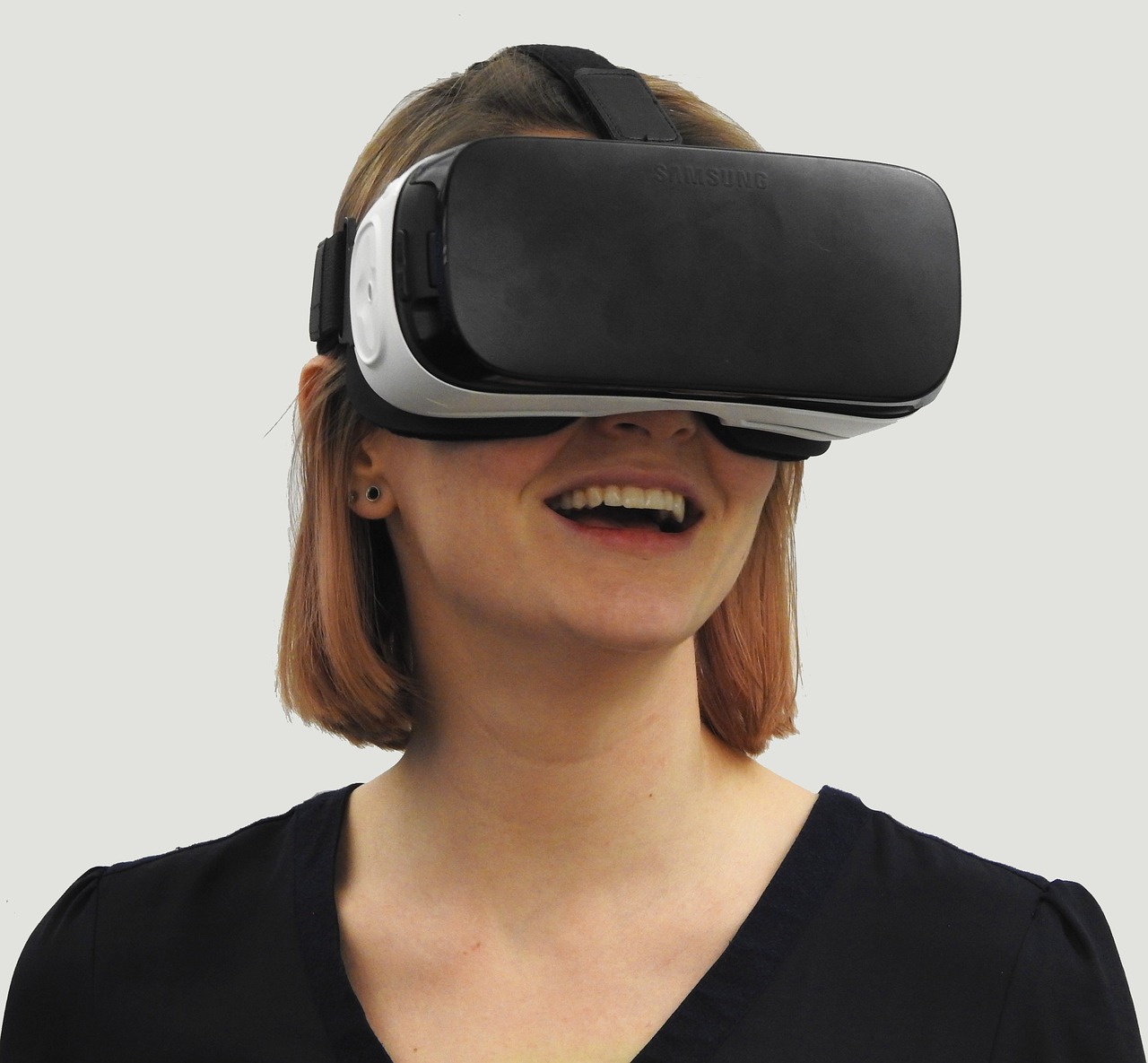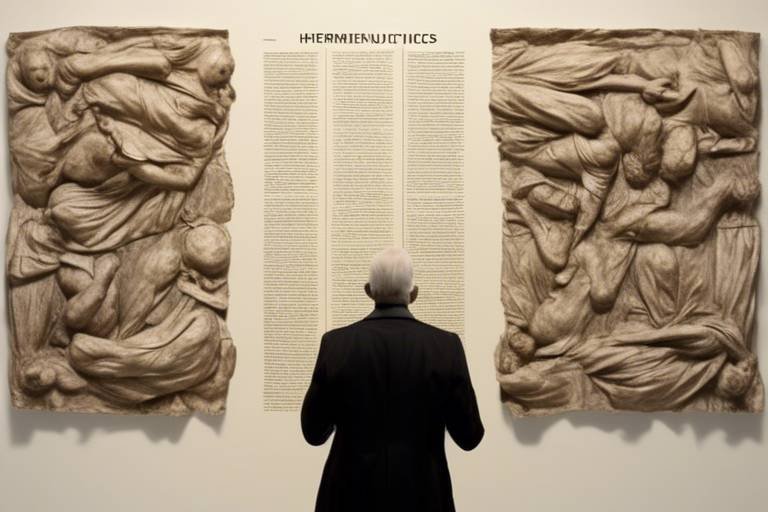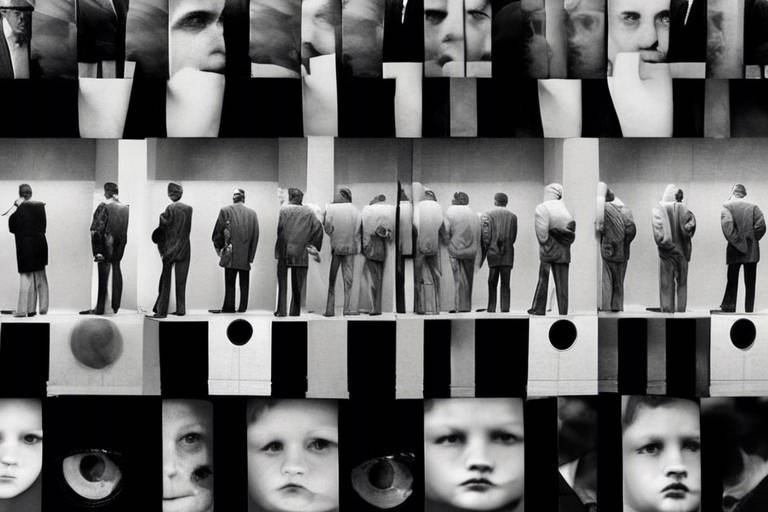Is Reality Merely a Perception?
Have you ever found yourself questioning the world around you? It's a profound thought that has intrigued philosophers, scientists, and curious minds alike: This question dives deep into the essence of existence and challenges our understanding of what is real versus what is simply a figment of our imagination. As we navigate through life, we encounter countless experiences that shape our beliefs and perceptions. But how much of what we perceive is actually true? In this article, we'll explore the philosophical and scientific perspectives that define reality, the role of perception in shaping our understanding, and the impact of culture on how we interpret the world.
Understanding what constitutes reality is crucial. At its core, reality is often viewed as the sum of all things that exist, independent of our perceptions. However, this objective viewpoint is frequently challenged by subjective experiences. For instance, two people can witness the same event but interpret it entirely differently based on their backgrounds, beliefs, and emotions. This divergence raises an intriguing question: Can we ever truly know what reality is? Philosophically, reality is often divided into two camps: objective reality, which exists outside our perceptions, and subjective reality, which is shaped by individual experiences. These differing interpretations can lead to fascinating discussions about the nature of existence itself.
Perception plays a vital role in shaping our understanding of reality. Our senses—sight, sound, touch, taste, and smell—act as windows to the world, filtering the information we receive. However, these sensory experiences are not infallible. For example, consider the optical illusion that tricks your eyes into seeing something that isn't there. This illustrates how our perceptions can be misleading. How often do we take our perceptions at face value without questioning their validity? The implications of these perceptions can be vast, influencing everything from personal relationships to societal norms.
Various philosophical theories propose different interpretations of reality. Thinkers like René Descartes and Immanuel Kant have contributed significantly to our understanding of existence and perception. Descartes famously declared, "I think, therefore I am," suggesting that our very act of thinking is proof of our existence. On the other hand, Kant argued that our understanding of reality is filtered through our experiences and senses, emphasizing the subjective nature of perception. These perspectives highlight the ongoing debate about the essence of reality and how it is intertwined with our perceptions.
The debate between idealism and realism showcases contrasting views of reality. Idealists argue that reality is fundamentally mental and that the material world is secondary to our perceptions. In contrast, realists maintain that an objective reality exists independent of our thoughts. This philosophical tug-of-war raises questions about the nature of existence and encourages us to ponder: Which side do you align with? Understanding these philosophies can help us navigate the complexities of our own perceptions.
Phenomenology takes a different approach by focusing on individual experience and consciousness. This philosophical method examines how we perceive the world around us and emphasizes the importance of personal experience in shaping our understanding of reality. By acknowledging that each person's perception is unique, phenomenology invites us to appreciate the diversity of human experience. It suggests that reality is not a one-size-fits-all concept but rather a tapestry woven from countless individual threads.
Scientific inquiry provides a different lens through which to view reality. Empirical evidence and theories inform our understanding of the physical world, often challenging our perceptions. For instance, the theory of relativity reshaped our understanding of time and space, demonstrating that our perceptions of these concepts are not as straightforward as they seem. Scientists continue to explore the mysteries of the universe, reminding us that reality is a complex interplay of observable phenomena and human interpretation.
Cultural backgrounds play a significant role in shaping our perceptions of reality. From the stories we grow up hearing to the values we adopt, culture influences how we interpret our experiences. For example, a person raised in a collectivist society may view success through the lens of community and family, while someone from an individualistic culture might prioritize personal achievement. This cultural lens can lead to vastly different interpretations of the same reality, emphasizing the idea that perception is not just personal but also profoundly social.
Social constructs are ideas created and accepted by society that shape our perception of reality. Concepts like race, gender, and class are not just biological or inherent traits; they are shaped by societal norms and expectations. These constructs can influence how we view ourselves and others, often leading to biases and stereotypes. Understanding these social constructs is crucial for fostering empathy and challenging our preconceived notions about reality.
Language plays a crucial role in shaping perception. The words we use can influence how we think and feel about the world. For instance, some languages have words for concepts that others do not, leading to varied interpretations of reality across different cultures. This linguistic diversity highlights the idea that our understanding of reality is partially constructed through language, raising the question: How does your language shape your perception of reality?
- What is the difference between reality and perception? Reality refers to the state of things as they actually exist, while perception is how we interpret and understand those things based on our experiences.
- Can two people perceive the same reality differently? Yes, individual experiences, backgrounds, and beliefs can lead to different interpretations of the same event or situation.
- How does culture influence perception? Culture shapes our beliefs, values, and experiences, which in turn affect how we perceive and interpret reality.

The Nature of Reality
Understanding what constitutes reality is crucial in our quest for knowledge and comprehension. At first glance, reality seems straightforward: it's the world around us, the tangible objects we can see and touch. However, when we dig deeper, we uncover layers of complexity that challenge our perceptions. Philosophers and scientists alike have long debated the essence of reality, often leading to more questions than answers. Are we merely observers in a world that exists independently of us, or is our understanding of reality fundamentally shaped by our subjective experiences?
From a philosophical standpoint, reality is often divided into two categories: the objective and the subjective. Objective reality refers to the world as it exists, independent of human thoughts and feelings. It encompasses the laws of physics, the existence of matter, and the universe's vastness. On the other hand, subjective reality is shaped by individual perceptions, experiences, and interpretations. This duality raises intriguing questions: Can we ever truly know objective reality, or are we forever trapped in our subjective perceptions?
To illustrate this point, consider the following analogy: imagine two people standing on opposite sides of a river. One sees the river as a tranquil body of water, while the other perceives it as a raging torrent. Both perspectives are valid, yet they are shaped by personal experiences and emotions. This example highlights how perception can distort reality, leading to vastly different interpretations of the same situation.
Additionally, scientific inquiry offers another lens through which we can examine reality. The scientific method relies on empirical evidence and reproducibility, striving to uncover the underlying truths of the physical world. However, even science acknowledges that our understanding of reality is limited by our current knowledge and technology. For instance, consider how our understanding of the universe has evolved over time—from the geocentric model to the heliocentric model, and now to the expanding universe theory. Each shift in understanding reflects a deeper exploration of reality, yet it also reveals how much we still have to learn.
Ultimately, the nature of reality is a complex interplay between objective truths and subjective perceptions. It invites us to question our assumptions, challenge our beliefs, and remain open to new ideas. As we navigate this intricate landscape, we must ask ourselves: Are we merely perceiving reality, or are we actively shaping it with our thoughts and experiences?

The Role of Perception
Perception is like the lens through which we view the world, shaping our understanding and experiences in profound ways. It’s fascinating to consider how our senses—sight, sound, touch, taste, and smell—interact with our brain to create a unique tapestry of reality. Imagine walking through a vibrant market; the colors of the fruits, the sounds of vendors calling out, and the smell of spices all come together to form a rich experience. But what if someone else, standing right next to you, perceives the scene entirely differently? This divergence is where the magic and mystery of perception come into play.
Our sensory experiences are not just passive receptions of information; they are active interpretations influenced by a myriad of factors, including our emotions, past experiences, and even our cultural background. For instance, two people looking at the same painting might derive completely different meanings from it based on their personal histories. This subjectivity raises a compelling question: if our perceptions can differ so widely, can we truly claim to have an objective understanding of reality?
Furthermore, the implications of perception extend beyond individual experiences. They can shape societal norms and collective beliefs. Consider how certain colors can evoke specific emotions across different cultures. In Western societies, white is often associated with purity and weddings, while in some Eastern cultures, it symbolizes mourning. These culturally ingrained perceptions can lead to misunderstandings and conflicts, highlighting the importance of recognizing and respecting diverse viewpoints.
The way we perceive reality is also a reflection of our cognitive processes. Our brains are wired to filter and prioritize information, often leading to biases that can distort our understanding. For example, the confirmation bias leads us to seek out information that supports our existing beliefs while ignoring contradictory evidence. This can create echo chambers where our perception of reality becomes increasingly skewed.
In essence, perception is not merely about what we see or hear; it’s about how we interpret and understand those stimuli. It’s a complex interplay of sensory input, cognitive processing, and emotional response. Understanding this role of perception is crucial, as it allows us to navigate our interactions with others and the world around us more effectively. By acknowledging that our reality is shaped by perception, we can foster empathy and open-mindedness, paving the way for deeper connections and a more harmonious society.
To summarize, perception plays a pivotal role in shaping our understanding of reality. It is influenced by our senses, emotions, past experiences, and cultural backgrounds. Recognizing the subjective nature of perception can help us appreciate the diverse perspectives that exist in the world, ultimately enriching our interactions and experiences.
- What is perception? Perception is the process by which we interpret sensory information to understand our environment.
- How does culture influence perception? Culture shapes our beliefs and values, which in turn affect how we interpret experiences and stimuli.
- Can perception change over time? Yes, our perceptions can evolve based on new experiences, information, and changes in our emotional state.
- Why is understanding perception important? Understanding perception helps us navigate social interactions, appreciate diverse viewpoints, and foster empathy.

Philosophical Perspectives
When we dive into the realm of philosophy, we find ourselves navigating through a complex landscape of ideas that attempt to decipher the essence of reality. Philosophers have long grappled with the question: Is reality a fixed entity, or is it merely a tapestry woven from our subjective experiences? To answer this, we can look at several key philosophical perspectives that illuminate how we perceive existence.
One of the most influential schools of thought is Idealism, which posits that reality is fundamentally mental. Idealist philosophers, such as George Berkeley, argue that the material world does not exist independently of our perceptions. In Berkeley's famous dictum, "To be is to be perceived," he suggests that objects only exist when they are perceived by a conscious mind. This raises intriguing questions about the nature of existence: If a tree falls in a forest and no one is there to hear it, does it make a sound? Idealism challenges us to consider whether reality exists at all without our perception.
On the flip side, we have Realism, which asserts that an objective reality exists independent of our perceptions. Thinkers like Aristotle and later, David Hume, emphasized that reality is composed of tangible entities that can be observed and measured. Realism suggests that our sensory experiences, while subjective, are reflections of an underlying reality that remains constant, regardless of individual interpretation. This perspective aligns with a more scientific approach, suggesting that there are facts about the world that exist outside our personal views.
Another fascinating approach is Phenomenology, pioneered by philosophers like Edmund Husserl and Martin Heidegger. This school of thought focuses on the individual's lived experience and consciousness as the starting point for understanding reality. Rather than attempting to define reality in abstract terms, phenomenology emphasizes the importance of personal experience and how it shapes our understanding of existence. It asks us to consider how our perceptions are influenced by our emotions, memories, and social contexts, thus painting a more nuanced picture of reality that is deeply personal and subjective.
To illustrate these philosophical perspectives, let's consider a simple table that summarizes the core tenets:
| Philosophical Perspective | Key Idea | Notable Philosophers |
|---|---|---|
| Idealism | Reality is mentally constructed and dependent on perception. | George Berkeley, Immanuel Kant |
| Realism | Reality exists independently of our perceptions. | Aristotle, David Hume |
| Phenomenology | Reality is shaped by individual experience and consciousness. | Edmund Husserl, Martin Heidegger |
In conclusion, these philosophical perspectives offer rich insights into the ongoing debate about the nature of reality. Whether one leans towards idealism, realism, or phenomenology, it becomes clear that our understanding of reality is a complex interplay between perception and existence. Each viewpoint invites us to reflect on our own experiences and challenges us to question the very fabric of what we consider to be real.
- What is the difference between idealism and realism? Idealism suggests that reality is mentally constructed, while realism posits that an objective reality exists independent of perception.
- How does phenomenology contribute to our understanding of reality? Phenomenology emphasizes the importance of individual experiences and consciousness, suggesting that reality is shaped by personal perceptions.
- Can reality exist without perception? This is a central question in philosophy, with differing opinions based on the perspective one adopts—idealists may argue no, while realists would say yes.

Idealism vs. Realism
When diving into the philosophical waters of idealism and realism, we find ourselves navigating two fundamentally different approaches to understanding reality. Imagine standing at a crossroads: on one side, idealism beckons with the promise that our thoughts and consciousness shape the world around us, while on the other, realism stands firm, asserting that an objective reality exists independent of our perceptions. This philosophical tug-of-war has captivated thinkers for centuries, raising questions that are as relevant today as they were in the past.
At its core, idealism posits that the mind is the primary reality. Think of it as a painter who creates a masterpiece on a blank canvas; the artist's vision and interpretation dictate the final image. Idealists argue that our experiences and perceptions are the building blocks of reality, suggesting that what we perceive is not necessarily the world as it exists but rather a reflection of our consciousness. Renowned philosophers like George Berkeley championed this view, famously stating, "To be is to be perceived." In this light, reality becomes a subjective experience, molded by our thoughts and interpretations.
Conversely, realism takes a more grounded approach. It asserts that the world exists independently of our perceptions. Imagine a sturdy tree standing tall in a forest; whether or not someone is there to witness it, the tree exists and functions within the ecosystem. Realists argue that there are objective truths and facts that remain constant, regardless of individual beliefs or perceptions. Philosophers like Aristotle and David Hume have laid the groundwork for this perspective, emphasizing the importance of empirical evidence and observation in understanding the world.
The clash between these two perspectives raises several intriguing questions. For instance, can we ever truly know reality if our perceptions are clouded by individual biases? Or is it possible that our interpretations, influenced by personal experiences, can lead us to a deeper understanding of the truth? This debate is not merely academic; it has profound implications for how we navigate our lives, make decisions, and interact with others.
To illustrate the differences between idealism and realism, consider the following table:
| Aspect | Idealism | Realism |
|---|---|---|
| Definition | Reality is shaped by perceptions and consciousness. | Reality exists independently of perceptions. |
| Key Philosophers | George Berkeley, Immanuel Kant | Aristotle, David Hume |
| Nature of Truth | Subjective and variable based on individual experience. | Objective and consistent, based on empirical evidence. |
As we reflect on these contrasting views, it's essential to recognize that neither perspective holds absolute dominion over the truth. Instead, they offer complementary lenses through which we can explore the complexities of existence. Perhaps, like two sides of the same coin, idealism and realism can coexist, providing us with a richer understanding of reality. After all, life is often a blend of subjective experiences and objective truths, making the exploration of these philosophical ideas an ongoing journey.
- What is idealism? Idealism is a philosophical viewpoint that suggests that reality is fundamentally shaped by our perceptions and consciousness.
- What is realism? Realism posits that an objective reality exists independent of our perceptions and experiences.
- Can idealism and realism coexist? Yes, many believe that these perspectives can complement each other, offering a more nuanced understanding of reality.
- How do these philosophies impact our daily lives? Our beliefs about reality can influence our decisions, relationships, and overall worldview.

Phenomenology
is an intriguing philosophical approach that dives deep into the individual experience and consciousness. Think of it as a lens that allows us to view reality not as an abstract concept, but as a personal journey shaped by our unique perceptions. Imagine walking through a vibrant forest; while the trees, birds, and sunlight are the same for everyone, the feelings they evoke and the memories they trigger can differ drastically from one person to another. This is the essence of phenomenology—it emphasizes how our subjective experiences create our understanding of reality.
This philosophical method was notably advanced by Edmund Husserl, who believed that to truly grasp the essence of our experiences, we must set aside our preconceived notions and biases. He introduced the idea of epoché, a suspension of judgment about the natural world to focus purely on the experience itself. By doing this, phenomenology encourages us to explore the richness of our perceptions without the clutter of societal expectations or scientific interpretations.
Consider this: when you taste a ripe strawberry, your experience is not just about the sweetness or tartness. It's about the texture, the color, the smell, and even the memories associated with strawberries from childhood. All these elements come together to form a complete picture of your reality at that moment. In phenomenology, every sensation is significant, and every experience is valid. This approach invites us to ask questions like:
- What does this experience mean to me?
- How does it shape my understanding of the world?
- What emotions does it evoke?
By engaging with these questions, phenomenology allows us to peel back the layers of our consciousness and examine how our personal experiences contribute to our perception of reality. It emphasizes that reality is not merely a backdrop where events unfold; rather, it is an intricate tapestry woven from our thoughts, feelings, and sensory experiences.
In a broader context, phenomenology can also intersect with other disciplines like psychology, art, and even science. For instance, artists often strive to capture the essence of their experiences through their work, inviting viewers to share in their perception of reality. Similarly, psychologists may use phenomenological methods to understand how individuals perceive their experiences and how these perceptions influence their mental health.
Ultimately, phenomenology challenges us to embrace the complexity of our experiences. It reminds us that while we may share a common world, our realities are profoundly personal. By acknowledging the richness of our perceptions, we can foster a greater appreciation for the diverse ways in which people experience life. So, the next time you find yourself in a shared environment, take a moment to reflect on how your reality might differ from those around you. It’s a fascinating journey into the depths of consciousness!

Scientific Insights
When we dive into the realm of science, we encounter a fascinating tapestry woven with threads of discovery, experimentation, and observation. Science offers a unique lens through which we can examine the nature of reality, often relying on empirical evidence to draw conclusions about the world around us. Unlike philosophical discourse, which often thrives on abstract reasoning, scientific inquiry demands tangible proof and reproducibility. This rigorous approach has led to groundbreaking discoveries that not only enhance our understanding of the physical universe but also challenge our perceptions of reality itself.
One of the most compelling aspects of scientific insights is the way they reveal the limitations of human perception. Our senses, while powerful tools for navigating the world, are not infallible. For instance, consider optical illusions. These fascinating phenomena exploit the quirks of our visual system, demonstrating how easily our brains can be tricked. What we see can be drastically different from what actually exists. This raises an intriguing question: if our senses can deceive us, how can we trust our perception of reality?
Moreover, advancements in fields such as quantum physics have introduced concepts that further complicate our understanding of reality. The idea that particles can exist in multiple states simultaneously until observed challenges the very notion of an objective reality. As physicist Niels Bohr famously stated, “We are not only observers; we are participants in the unfolding of reality.” This notion suggests that our observation—our very act of perceiving—can influence the state of what we are observing. It’s a mind-bending idea that blurs the lines between perception and reality.
To illustrate the impact of scientific insights on our understanding of reality, let’s look at some key concepts:
| Concept | Description |
|---|---|
| Quantum Superposition | The ability of a particle to exist in multiple states at once until measured. |
| Relativity | The theory that time and space are not absolute but are relative to the observer's frame of reference. |
| Neuroscience | The study of the brain and nervous system, revealing how perception is constructed in the brain. |
These concepts illustrate how scientific discoveries can reshape our understanding of reality. They challenge the traditional notions of what is 'real' and encourage us to question our perceptions. For example, the theory of relativity tells us that two observers moving at different speeds may perceive time and space differently. This realization underscores the idea that our perception of reality is not only subjective but also influenced by our physical state and environment.
Furthermore, neuroscience has unveiled the complexities of how our brains process sensory information. Research shows that our perceptions are not direct reflections of the external world but are instead constructed by our brains based on previous experiences and contextual cues. This means that two people can witness the same event but interpret it differently based on their unique backgrounds and mental frameworks. Such insights compel us to consider the profound implications of perception on our understanding of reality.
In summary, scientific insights offer a powerful counterpoint to traditional philosophical debates about reality. They remind us that while our perceptions shape our experiences, they are also subject to the limitations of our senses and the complexities of the universe. As we continue to explore the depths of scientific inquiry, we may find that reality is not merely a static entity but a dynamic interplay of perception, observation, and existence.
- What is the difference between perception and reality? Perception refers to how we interpret and understand the world through our senses, while reality is the objective state of the world that exists independently of our perceptions.
- Can science prove what is real? Science can provide evidence and frameworks to understand reality, but it often reveals that reality is more complex than it appears and can be influenced by our perceptions.
- How does culture affect our perception of reality? Cultural backgrounds shape our beliefs, values, and experiences, which in turn influence how we perceive and interpret reality.

The Impact of Culture on Perception
Culture acts as a lens through which we view the world, influencing our beliefs, values, and interpretations of reality. Just like a pair of glasses, the cultural framework we wear can either clarify or distort our perception of what is real. For instance, consider how different cultures interpret time. In many Western societies, time is viewed linearly, leading to a focus on schedules and deadlines. In contrast, some Indigenous cultures perceive time as cyclical, emphasizing the importance of seasons and natural rhythms. This fundamental difference in perception can shape everything from daily routines to long-term planning.
Moreover, culture shapes our emotional responses and social interactions. In collectivist societies, such as those found in many Asian countries, the emphasis is placed on group harmony and community. This can lead to a perception of reality where individual desires are often subordinated to the needs of the group. Conversely, in individualistic cultures, like those in the United States, personal achievement and self-expression are highly valued, leading to a perception of reality that prioritizes individual goals. This divergence can create misunderstandings when individuals from these different cultural backgrounds interact, as each party may perceive the same situation through vastly different cultural lenses.
Furthermore, cultural narratives and myths play a significant role in shaping our understanding of reality. These stories, passed down through generations, provide frameworks for interpreting experiences. For example, a culture that emphasizes heroism and individual struggle may encourage its members to view challenges as personal battles to be fought alone, while another culture that values cooperation may see the same challenges as opportunities for communal support and collaboration.
The implications of cultural influence on perception are profound. They not only affect personal interactions but also shape societal norms and policies. For instance, the way mental health is perceived can vary dramatically across cultures. In some societies, mental health issues may be stigmatized, leading to a perception that those affected are weak or flawed. In others, mental health is openly discussed, fostering an understanding that it is a common human experience. This variation can impact everything from healthcare access to the support systems available for individuals struggling with mental health challenges.
In conclusion, culture is a powerful force that shapes our perception of reality in myriad ways. From the narratives we embrace to the emotional responses we cultivate, our cultural backgrounds profoundly influence how we interpret our experiences. Understanding this impact is crucial, especially in our increasingly globalized world, where interactions between diverse cultures are commonplace. By recognizing and appreciating these differences, we can foster greater empathy and communication, paving the way for a more nuanced understanding of the complex tapestry of human experience.
- How does culture influence our perception of reality?
Cultural backgrounds shape our beliefs, values, and even our emotional responses, leading us to interpret experiences differently. - Can cultural differences lead to misunderstandings?
Absolutely! Different cultural lenses can create vastly different interpretations of the same situation, leading to potential conflicts or misunderstandings. - Why is it important to understand cultural impacts on perception?
Understanding these impacts fosters greater empathy and communication, which is essential in our diverse and interconnected world.

Social Constructs
When we talk about , we’re diving into a fascinating realm where our understanding of reality is heavily influenced by the collective beliefs and practices of society. Think of social constructs as the invisible frameworks that shape our perceptions—like the air we breathe, we often don’t notice them until we take a step back. These constructs encompass everything from gender roles to cultural norms, and they play a pivotal role in how we interpret our experiences.
For instance, consider the concept of gender. In many cultures, gender roles are strictly defined, dictating how individuals should behave based on their assigned sex at birth. This construct can limit personal expression and influence societal expectations. However, as we evolve, so do our understandings of these constructs. The growing acceptance of non-binary and gender-fluid identities is a prime example of how societal beliefs can shift, leading to a broader perception of reality.
Moreover, social constructs are not just limited to gender; they extend to various aspects of life, including race, class, and even time. Each of these constructs is a product of historical, cultural, and social influences. To illustrate this, let’s take a look at how different cultures view time:
| Culture | View of Time |
|---|---|
| Western Cultures | Linear, focusing on schedules and deadlines |
| Indigenous Cultures | Cyclical, emphasizing natural rhythms and seasons |
| Eastern Cultures | Fluid, with less emphasis on strict punctuality |
This table highlights how our perception of time can vary dramatically based on cultural backgrounds. In Western societies, time is often seen as a commodity, something to be managed and optimized. In contrast, many Indigenous cultures view time as a cyclical process, intertwined with nature and community. These differing perceptions can lead to misunderstandings and conflicts, showcasing how deeply rooted social constructs influence our interactions.
Furthermore, social constructs can have profound implications on personal identity and societal dynamics. They can create barriers or provide opportunities, shaping how individuals see themselves and how they are seen by others. The challenge lies in recognizing these constructs for what they are: human-made frameworks that can be redefined and challenged. By questioning these constructs, we open the door to a more inclusive understanding of reality that acknowledges diverse experiences and perspectives.
In conclusion, social constructs are not merely abstract ideas; they are powerful forces that shape our perceptions of reality. By understanding and deconstructing these constructs, we can gain a clearer view of the world around us, fostering empathy and acceptance in a diverse society. As we navigate through life, let’s remain aware of these invisible frameworks and strive to create a reality that celebrates individuality and collective understanding.
- What are social constructs? Social constructs are ideas or concepts that are created and accepted by society, influencing how we perceive and interact with the world.
- How do social constructs affect our daily lives? They shape our beliefs, values, and behaviors, impacting everything from personal identity to social interactions.
- Can social constructs change over time? Yes, social constructs can evolve as societies grow and change, leading to new understandings and perspectives.

Language and Perception
Language is not just a tool for communication; it is a powerful lens through which we perceive the world around us. Have you ever noticed how different languages seem to have unique ways of expressing the same concepts? This is no coincidence. The words we use can shape our thoughts and influence our understanding of reality. For instance, consider the concept of time. In English, we often think of time as a linear progression—past, present, and future. However, in many Indigenous languages, time is perceived as cyclical, which can lead to a fundamentally different understanding of events and their significance.
This fascinating interplay between language and perception is rooted in a concept known as the Sapir-Whorf Hypothesis, which suggests that the structure of a language affects its speakers' worldview and cognition. Essentially, the language we speak can limit or expand our ability to think about certain ideas. For example, some languages have multiple words for "snow," each describing a different type, while others may have only one. This linguistic diversity can lead to a richer perception of the environment for speakers of those languages.
Moreover, language can influence emotional perception. Certain words carry emotional weight, and the way we express feelings can vary dramatically across cultures. In some languages, there are specific terms for emotions that do not exist in others. For instance, the Portuguese word "saudade" conveys a deep emotional state of nostalgic longing for something or someone that one loves, but is absent. This unique word encapsulates a feeling that might require several phrases to explain in English. As a result, speakers of different languages may experience and articulate their emotions in distinct ways, which can shape their perception of reality.
To illustrate this further, let's consider a few examples of how language affects perception:
- Color Perception: Some languages have more color terms than others, affecting how speakers perceive and categorize colors. For example, Russian has separate words for light blue and dark blue, which may lead Russian speakers to distinguish between these shades more readily than English speakers.
- Spatial Orientation: In some languages, such as Guugu Yimithirr, speakers use cardinal directions (north, south, east, west) instead of relative terms (left, right) to describe locations. This can lead to a heightened awareness of one's surroundings and a different way of navigating the world.
- Gendered Language: Languages like Spanish and French assign gender to nouns, which can influence how speakers perceive objects and concepts. For instance, a bridge (la puente in Spanish) is feminine, while a key (la llave) is also feminine, potentially leading Spanish speakers to associate these objects with traditionally feminine traits.
In conclusion, the relationship between language and perception is complex and multifaceted. Language not only allows us to communicate but also shapes our thoughts, emotions, and understanding of reality. By examining how linguistic differences influence perception, we can gain deeper insights into the diverse ways people experience the world. It raises an intriguing question: if we were to learn another language, would we see the world differently? The answer is likely yes—each language opens up new avenues of thought and perception, enriching our understanding of existence itself.
- How does language influence our thoughts? Language can shape our thoughts by providing the vocabulary and structure we need to articulate our ideas, which can in turn affect how we perceive and interact with the world.
- Can learning a new language change my perception? Yes, learning a new language can introduce you to different cultural perspectives and ways of thinking, potentially altering your perception of reality.
- What is the Sapir-Whorf Hypothesis? The Sapir-Whorf Hypothesis posits that the structure of a language affects its speakers' worldview and cognition, suggesting that language can shape thought and perception.
Frequently Asked Questions
- What is the difference between reality and perception?
Reality refers to the objective state of things as they exist, independent of our thoughts or beliefs. On the other hand, perception is our personal interpretation of reality, shaped by our senses, experiences, and cultural background. Think of reality as the stage and perception as the actors interpreting the script.
- How do philosophical theories influence our understanding of reality?
Philosophical theories, such as idealism and realism, provide frameworks that help us interpret existence. Idealism suggests that reality is mentally constructed, while realism argues that an objective reality exists regardless of our perceptions. These theories challenge us to question what we accept as true and how we define our experiences.
- What role does culture play in shaping our perception of reality?
Culture influences our beliefs, values, and perceptions, acting like a lens through which we view the world. Different cultural backgrounds can lead to varying interpretations of the same events or concepts. For instance, a celebration in one culture might be seen as a mere gathering in another, illustrating how culture colors our understanding of reality.
- Can language affect how we perceive reality?
Absolutely! Language shapes our thoughts and can limit or expand our perceptions. Different languages have unique words and expressions that can influence how we think about concepts. For example, some cultures have multiple words for snow, which can lead to a more nuanced understanding of winter conditions compared to cultures with just one term.
- Is there a universal reality, or is it all subjective?
This is a hotly debated question! While some argue that an objective reality exists, others believe that each individual's perception creates their own version of reality. It’s like looking at a painting: one person might see beauty, while another sees chaos. Both interpretations are valid, yet they stem from personal experiences and beliefs.
- How does science contribute to our understanding of reality?
Science provides empirical evidence and theories that help us understand the physical world. It offers a systematic way to explore reality through observation and experimentation. While science aims to uncover objective truths, it also acknowledges that our interpretations of these truths can vary based on individual perspectives.



















